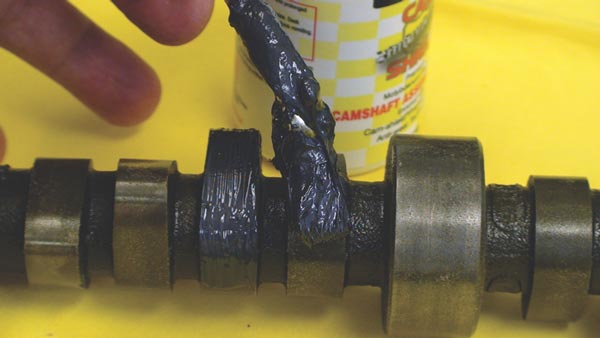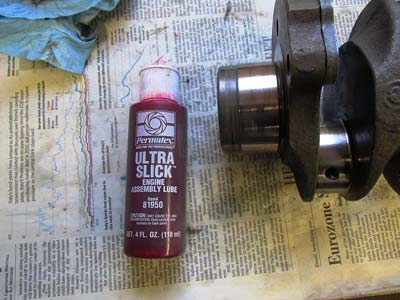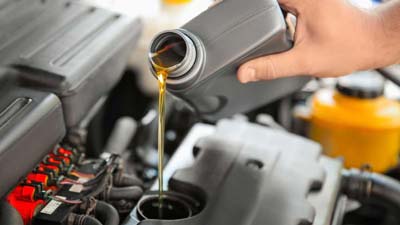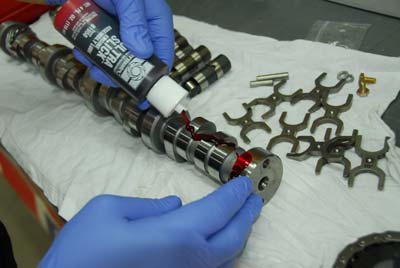
Whether you are putting together a car engine or a bike engine, lubrication is the first and the most important thing you should consider. Every moving part inside your vehicle was designed to have at least a sufficient amount of lubrication.
So what happens when you don’t lubricate your engine before assembling it? Well, anything but good. You see, if you don’t lubricate your engine, it will have a high amount of friction, and friction is the worst enemy of an engine.
Due to high friction, the moving parts inside will wear out fast. Okay, we get it. Lubrication is important, but which one should I use? Glad you asked. Assembly lube and oil should be your priority.
In this article, we will break down the differences between assembly lube and oil so that you can choose which one is better for your engine. But first, let’s get to know these two.
Table of Contents
What is engine oil?
Engine oil is undoubtedly the most popular liquid related to engines. It is the reason your precious car or motorbike performs so miraculously.
It’s just like every other oil you can imagine. But, the key difference is that it is specifically made for engines and should not be used anywhere else.
As we have said, it is oil but engineered to help your engine perform how it should. You will find many additives inside your engine oil.
As the name suggests, it is a liquid, and like every other liquid, it is not very dense. Remember this key point because it will come in handy later on.
What is engine assembly lube?
Engine oil and assembly lube are not that different when it comes to their duties. Both help lubricates your engine, ensuring that all the moving parts inside the engine move correctly.
Without either of them, your engine will most likely fail immediately, and no one would want that.
Unlike engine oil, assembly lube is thick and dense. You have surely come across grease, right? Yes, assembly lube is almost like grease. It has a formula that makes it really slippery.
This is why it can keep the moving parts inside your engine running smoothly for hours. Assembly lube is also more expensive than engine oil.
Usage of both engine assembly lube and oil
Their objectives might be similar, but that does not mean that they can’t have different usages. If you want to get the most out of these two, you must understand when and where to use them.
Assembly lube
Engine assembly lube can only be used for lubrication during the engine assembly. It usually comes in a white paste-like form.
Because it is paste-like, it is less resistant to gravity than engine oil. This makes the assembly lube stay in place for a longer duration.

Assembly lube will protect your engine from scuffing, metal-to-metal rubbing, corrosion, and acidic properties.
All of these protections will ensure long-lasting engine performance. Due to its super thickness, it will cling on to wherever you rub it, causing zero drip.
Because of these features, engine assembly lube is the perfect candidate to lubricate your engine before assembling it.
Engine oil
Engine oil, on the other hand, is the blood of your engine. Just like us humans that will die if something were to happen to our blood, an engine would malfunction without its blood, AKA engine oil.
The first and obvious thing it does is protect the moving parts inside your engine via lubricating them.

Now, you may ask, doesn’t assembly lube do the same thing? Yes, but the difference is that assembly lube is the first line of defense until oil arrives.
Other than lubricating your engine, oil also helps keep down the temperature. We all know that overheating is bad. If your engine keeps on running really hot, it will most likely fail way before it was supposed to.
The differences between engine assembly lube and oil
Now that we know all the basic functions and usages of both assembly lube and engine oil. It is time to look at their differences so that you can finally settle down for one (or both?).
Density
Earlier, we told you to remember that oil is much less dense than assembly lube. The density plays a major role when it comes to engine protection and lubrication.
Once you are done assembling the engine, it will obviously sit vertically. As oil’s density is less, it will slowly start to slide down towards the bottom side of the engine due to gravitational force.

With the passing of each day, more and more oil will fall until there is little to no oil left for proper engine lubrication.
Assembly lube, on the other hand, is considered semi-solid. This is why it does not flow the same way as oil does.
So it tends to stay in place even after a long time. The easy answer is that whatever stays on your engine for longer should be your choice.
Cooling system
When your engine starts, it also starts generating heat, and that heat has to go somewhere to keep the engine running. If the heat has nowhere to go, it will raise your engine’s temperature and decrease its overall lifespan.
Engine oil is the main player when it comes to cooling the engine and transferring the heat. Studies have shown that it handles 40% of the whole engine heat transfers system.
An engine running with good oil flow has a cooler temperature than an engine that is not. Surprisingly, engine oil keeps the engine even cooler than its safe operating temperature that is 230-260F.
Assembly oil may not be that impressive when it comes to cooling, but you have to remember that it is not its job to do so. The assembly lube was designed to keep everything okay until the engine oil arrived.
Corrosion
Your whole engine is made out of metal, and everyone knows that metal is prone to corrosion if not protected properly.
The moving parts inside your engine have a smooth surface to perform how it is supposed to. If corrosion attacks your engine, it won’t have a smooth surface, thus, performance degradation.
When you put oil inside your engine, it forms a protective barrier on top of the moving parts. This prevents any chance of a corrosion attack.
To make the protection even better, some new engine oil comes with chemical compounds which neutralize corrosion.
Assembly lube, on the other hand, does not have such advanced features. It minimizes corrosion attack a lot, but that’s pretty much it.
Keeping the engine clean
Assembly lube keeps your engine clean and dirt-free. One of the best features of assembly lube is that it can keep contaminants out.
As we have said earlier, it is a semi-solid paste-like thing. This is why it can hold dirt and debris so that they don’t harm your moving parts.
On the other hand, engine oil does the job as good as an assembly lube, if not better. Oil gets pumped up from the oil sump via an oil pump.
Then the oil goes through the oil filter, which filters out all the unnecessary microscopic particles that might harm your engine. This way, it delivers a clean and pure lubrication supply. So, we can call it a draw.
Maintenance
If you lubricate your engine with oil before assembly, you might want to change it. Even though modern oil is much more efficient and advanced than the old ones, you have to change and replace the oil after a certain period.
If you don’t replace oil, it becomes very thick, eventually degrading your engine performance.
It sticks to your moving parts causing overheating, power loss, and hard starting. This is why you should think twice before using oil as assembly lubrication.
On the other hand, engine assembly lube does not have to be changed unless your engine is acting weird. Unlike oil, assembly lube does not become sludge or thick.
Final words
If we compare an engine to our bodies, lubrication is considered the engine’s blood. It keeps your engine alive during the startup before the engine oil can come to handle the rest of the lubrication.
As your first line of defense against wear out, friction, corrosion, and heat, you should always check whether your engine has enough lubrication in it or not.
Even a top-notch quality diesel engine can get damaged quickly due to the absence of lubrication. Our suggestion would be to go for assembly lube for your engine assembly instead of oil because you will use engine oil anyway.
So, let assembly lube take care of your initial engine startup, and then engine oil can take care of the rest.
Up Next: Best Premixed Fuel
